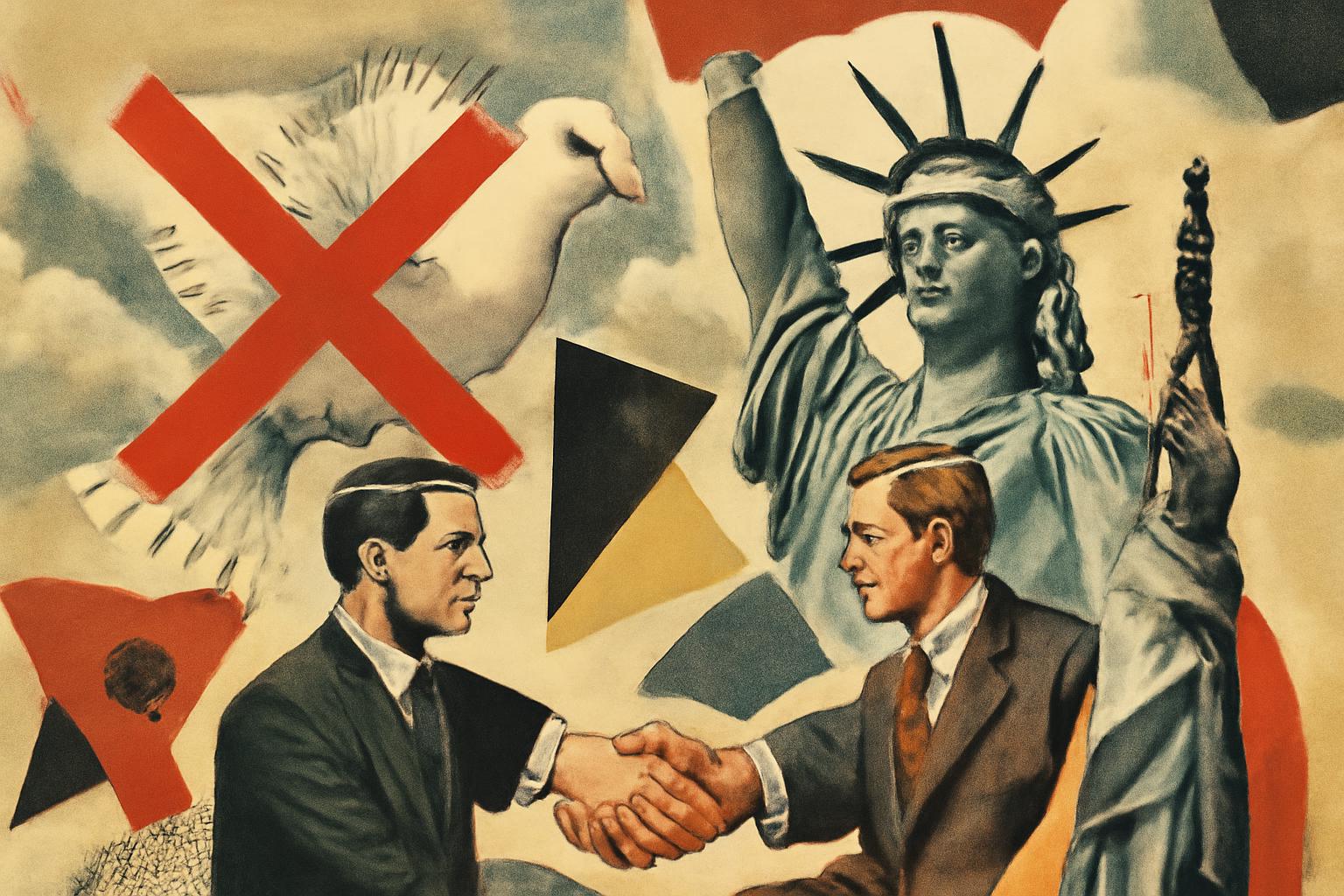The current diplomatic sprint looks like another expensive experiment in coercive governance: governments banding together, threatening “very serious consequences,” and tossing around terms like ceasefire, security guarantees, and sanctions waivers as if they were tools to wield at will. In practice, this is not a plan for peace born of prudence, but a plan for escalating state power in the name of managing outcomes that no centralized ledger can truly know. Hayek would remind us that the knowledge required to steer a continental war is dispersed, tacit, and local to countless individuals and firms. No summit, no coalition, no sanction timetable can replace the dispersed intelligence of countless voluntary actors operating under a system of rights and private contracts. The moment politicians pretend they can coordinate a durable peace from Washington, Brussels, and Moscow, they reveal the fundamental ignorance that Hayek warned us about.
Nozick would point out that the legitimate scope of government is narrowly defined: a night-watchman protecting individuals from force, theft, and fraud. Anything beyond that—defense of a preferred global order, guarantees to Ukraine, or enforcement of a geopolitical timetable—oversteps the rightful domain of the state and treats others as means to a collective security end. The idea that a coalition of states can reliably marshal security guarantees for a distant polity, or that sanctions can be calibrated to achieve a political outcome without infringing rights or provoking retaliation, rests on a coercive fiction: that the state can compute justice and risk better than individuals acting in their own self-interest under the rule of law. Nozick would warn that once you grant the state the prerogative to dictate terms of war and peace for others, you grant it license to define who is “us” and who is “them” by fiat, which is precisely the form of power he argues a minimal state is designed to restrain.
Rand would be uncompromising about the moral logic at stake. The individual’s rights—not abstractions like “European security” or “the global order”—are the irreducible measure of justice. War, sanctions, and coercive diplomacy become instruments not of defending individual rights but of enlarging state power and imposing collective grandeur on individuals who did not consent to bear the costs. The appeal to democracy, legitimacy, or humanitarian motives cannot override the fundamental right of peaceful people to live free from aggression, coercion, or compelled sacrifices for somebody else’s political project. If a state uses force to impose its vision of “peace,” it is wielding force against free association and private property—which Rand would condemn as the very disease she argued the state exists to cure.
Taken together, these thinkers yield a pointed libertarian diagnosis of the moment: the Alaska talks, the coalition, the threatened sanctions, and the promises of security guarantees are more about expanding state coercion than about building a durable, rights-respecting peace. The path to real peace cannot be paved with more centralized instruction, more weaponized diplomacy, or more rearrangements of who gets paid to be the referee. Peace grows where voluntary cooperation and respect for rights flourish, not where governments claim to orchestrate a grand coalition from above.
If we lean on Hayek, Nozick, and Rand, the answer is simple in principle and radical in practice: dissolve the pretension that distant and unaccountable politicians can design outcomes in a complex, rights-centered world. Reducing the scale and scope of state intervention is not a concession to weakness but a recognition of the fact that freedom and peace emerge from free association, private property, and a legal order that protects individual rights rather than enforces collective schemes.
So what would a libertarian response look like in concrete terms? Oppose coercive diplomacy and war-promoting semi-guarantees that balloon state power. Resist sanction regimes and timelines that treat national borders as command posts for moral grandstanding. Favor non-intervention and the protection of rights across borders through the mutual respect of private property and voluntary association. Encourage private diplomacy, voluntary aid, and market-driven resilience rather than state-managed peace processes. Let individuals and private institutions decide how to respond to aggression through voluntary cooperation, competitive aid, and peaceful trade, not through surrogates of state force. The only durable peace is produced not by coercive coalitions, but by order arising from voluntary exchange and the strict protection of individual rights.
